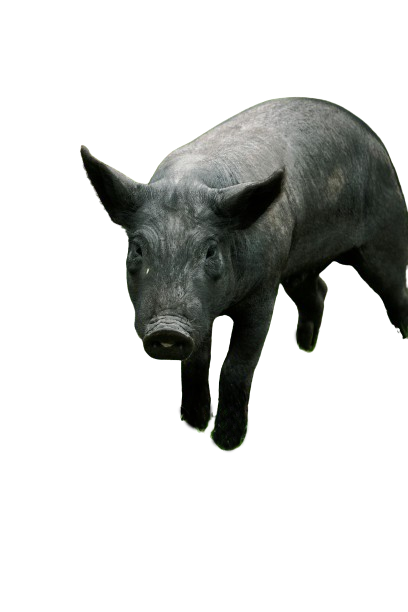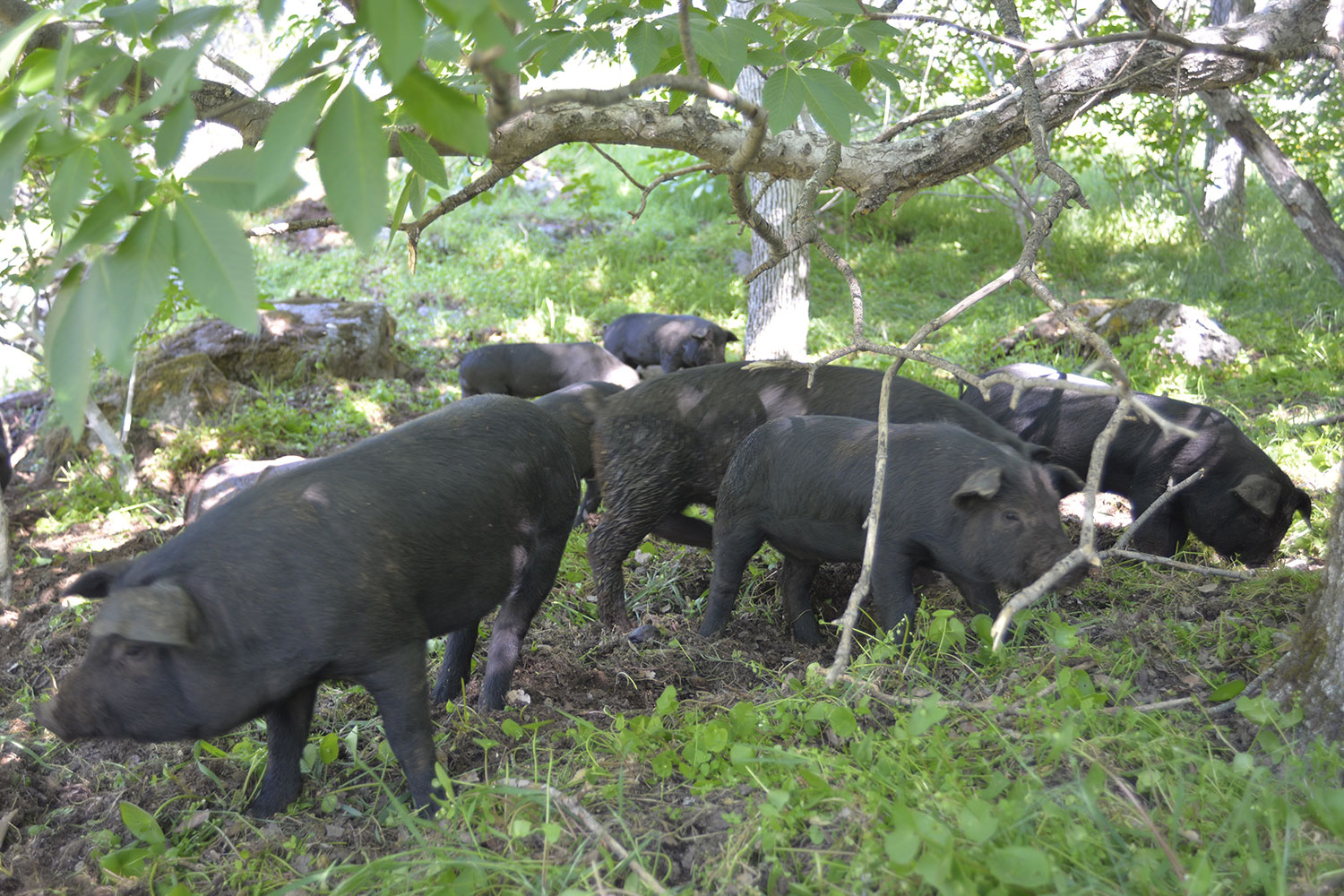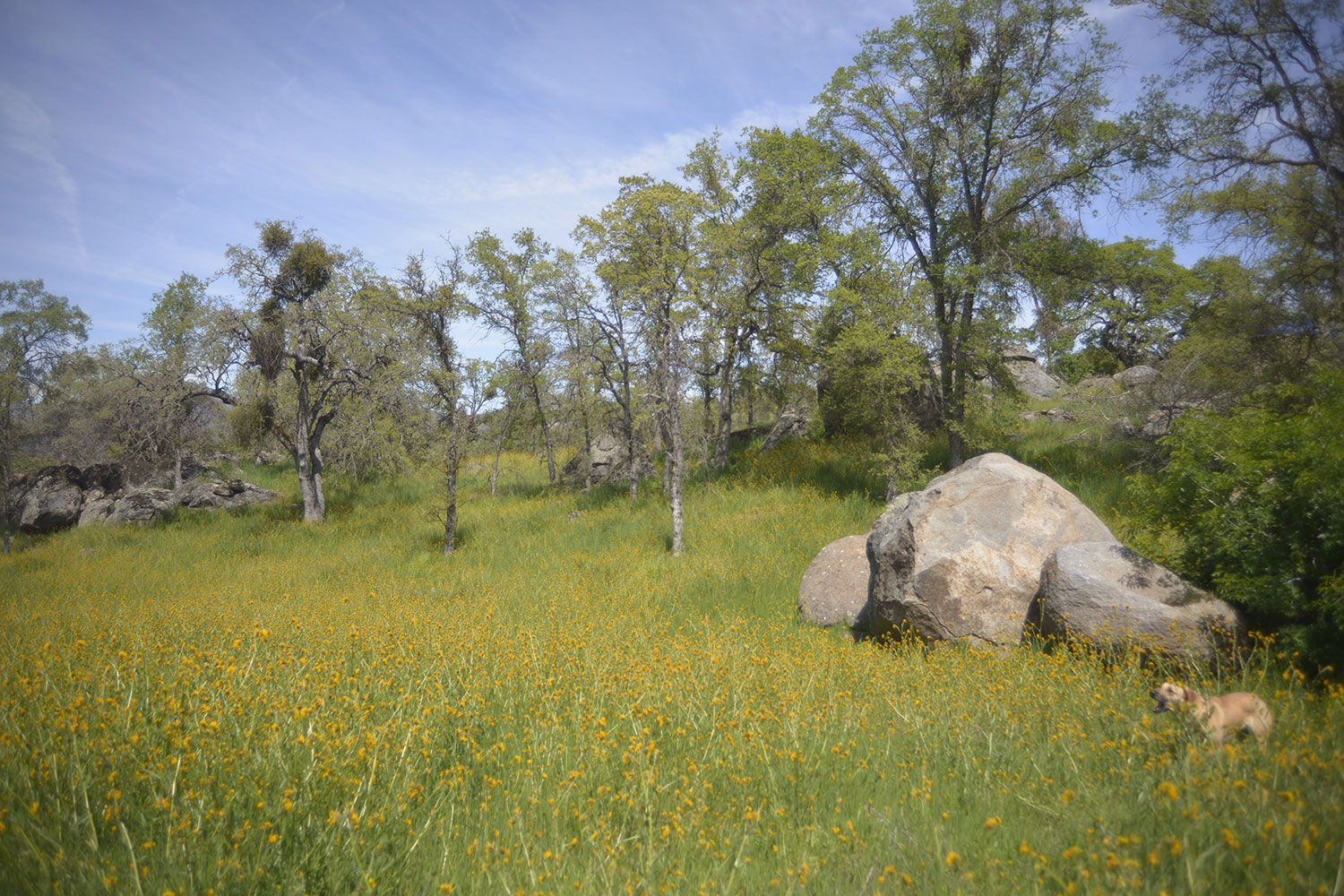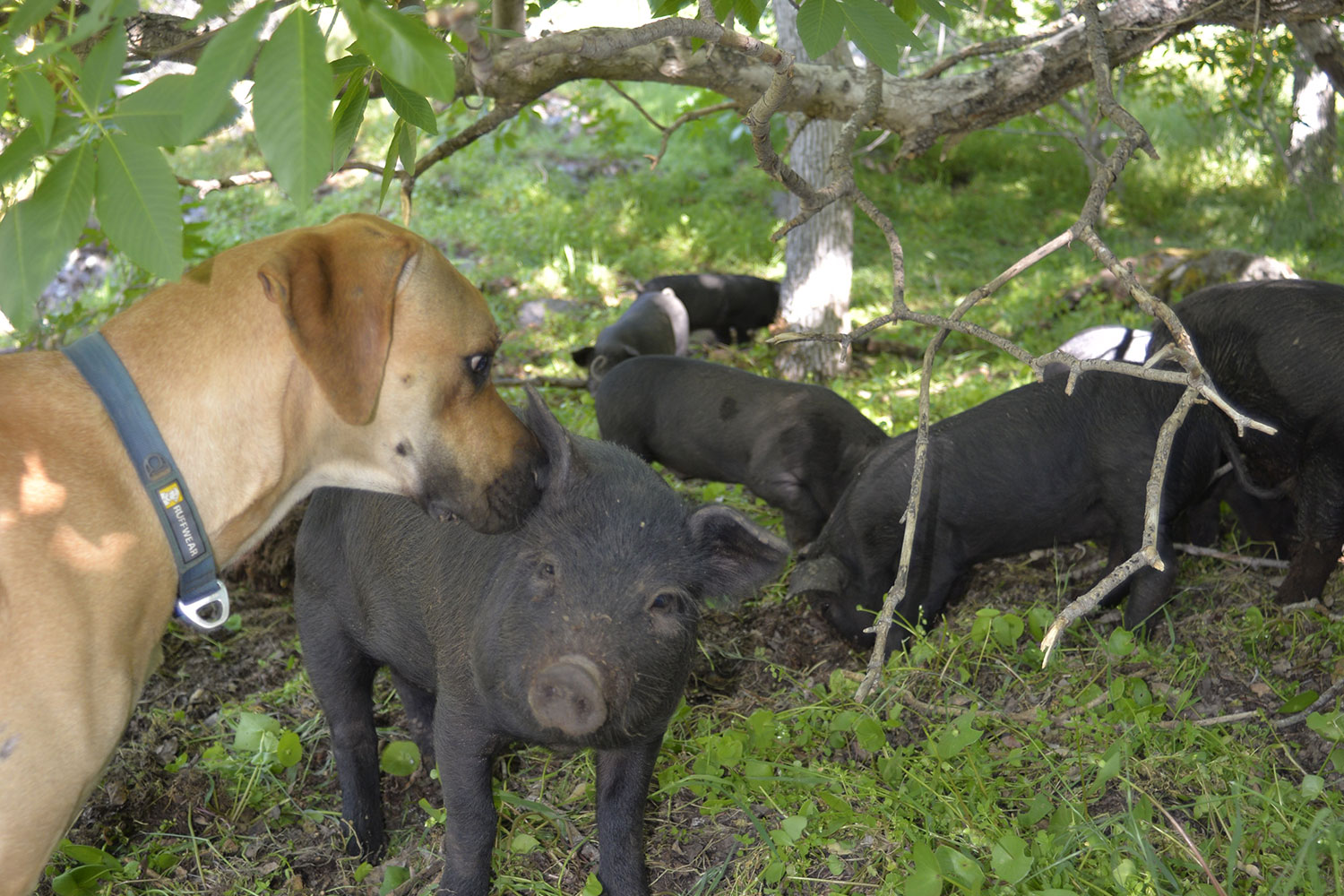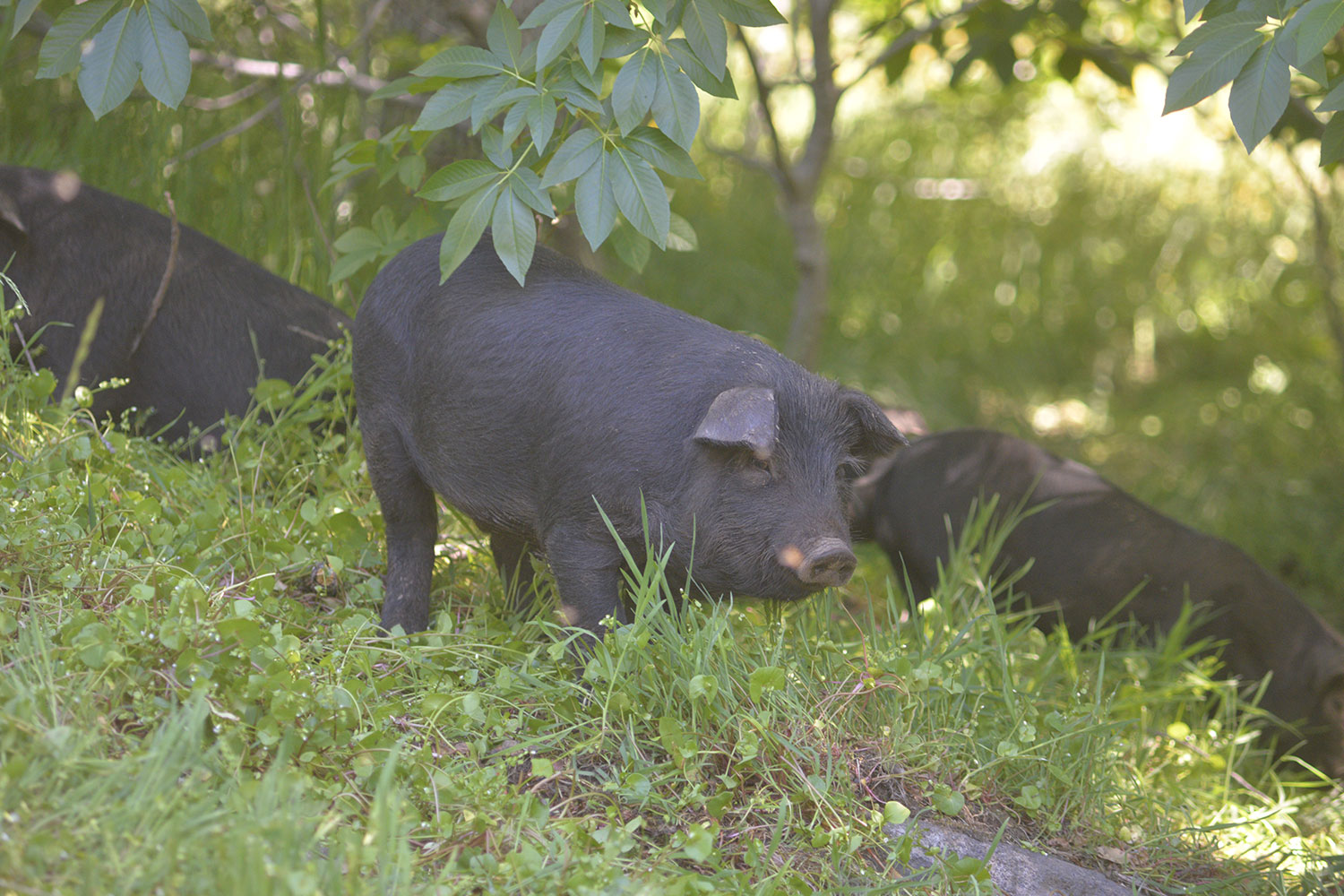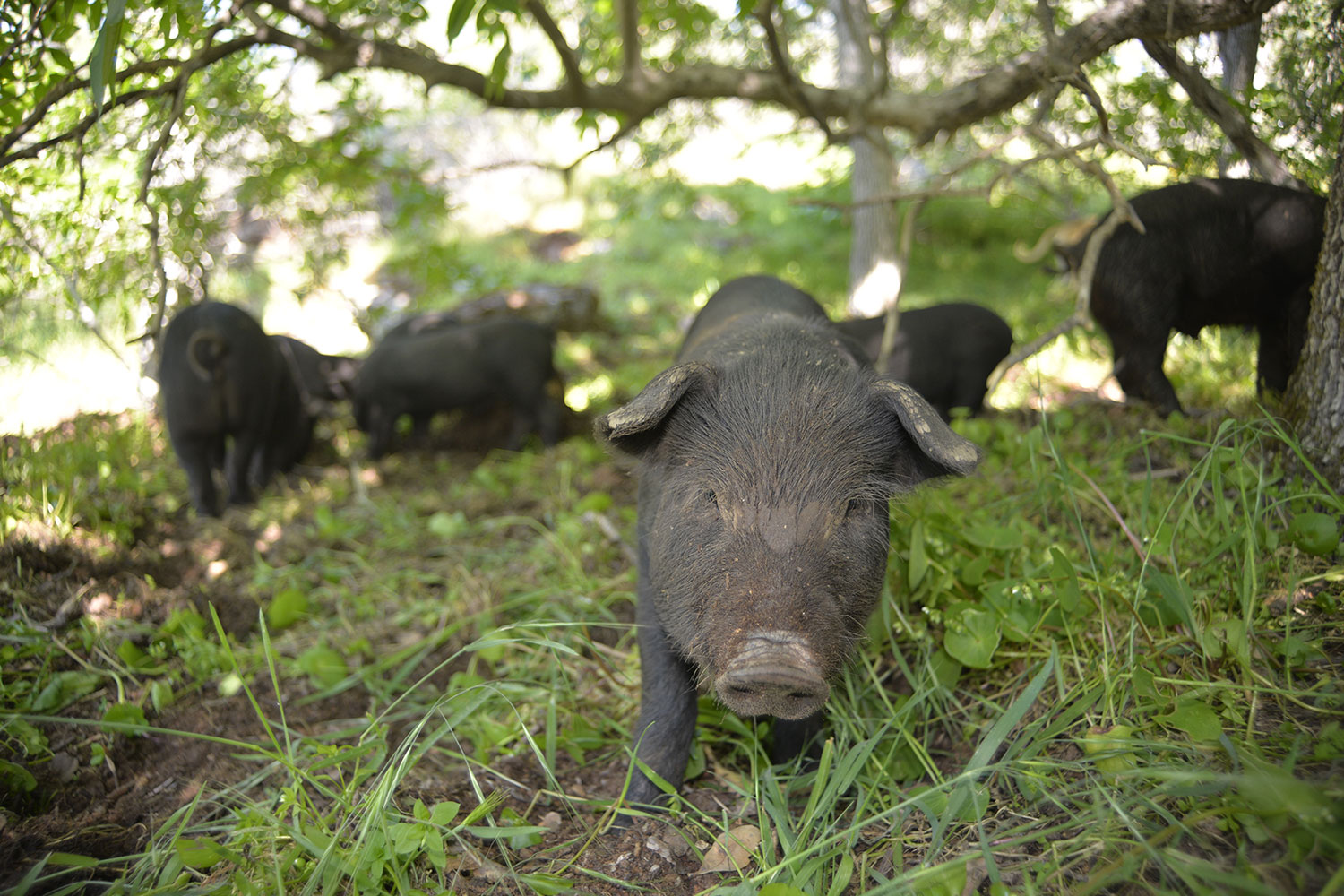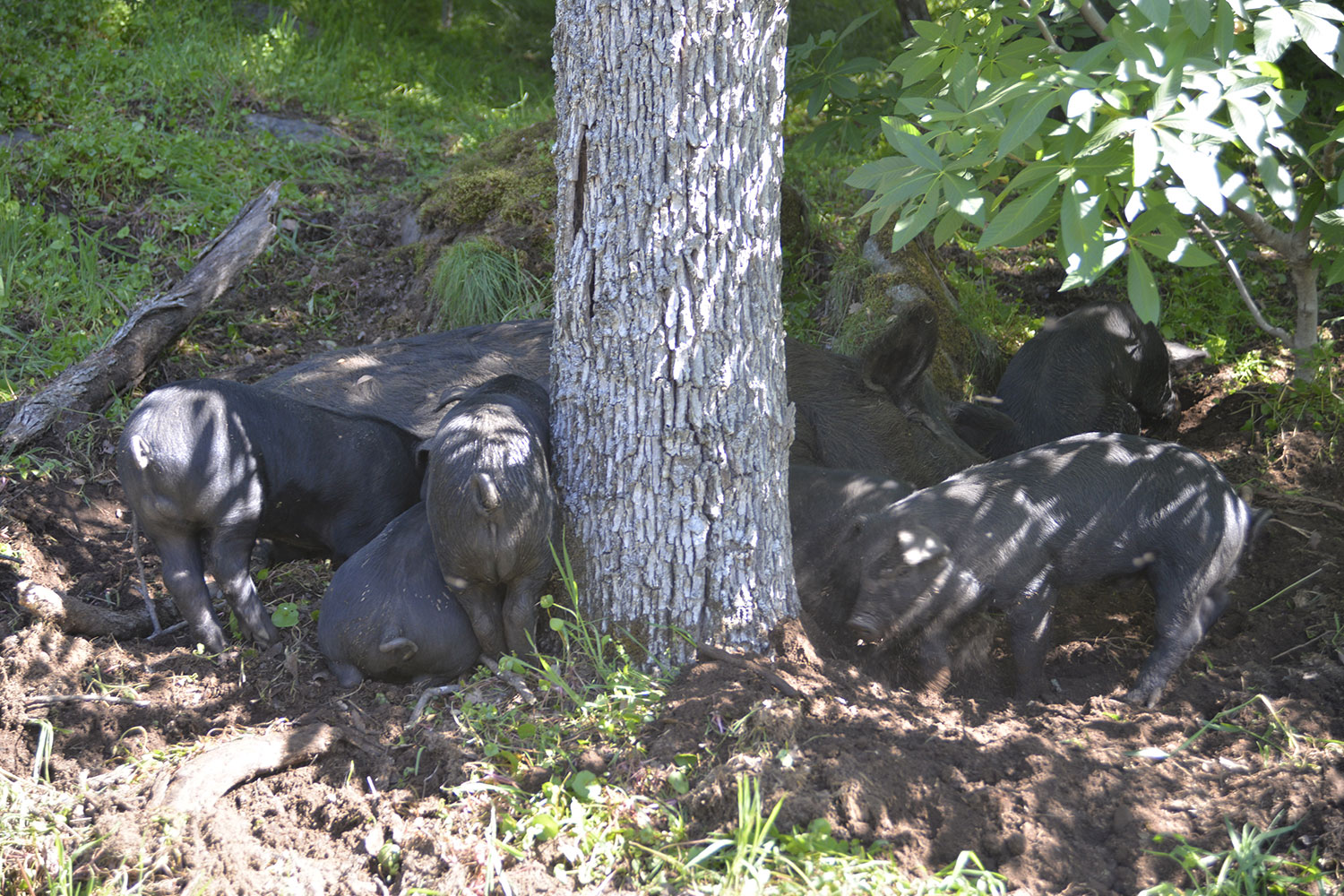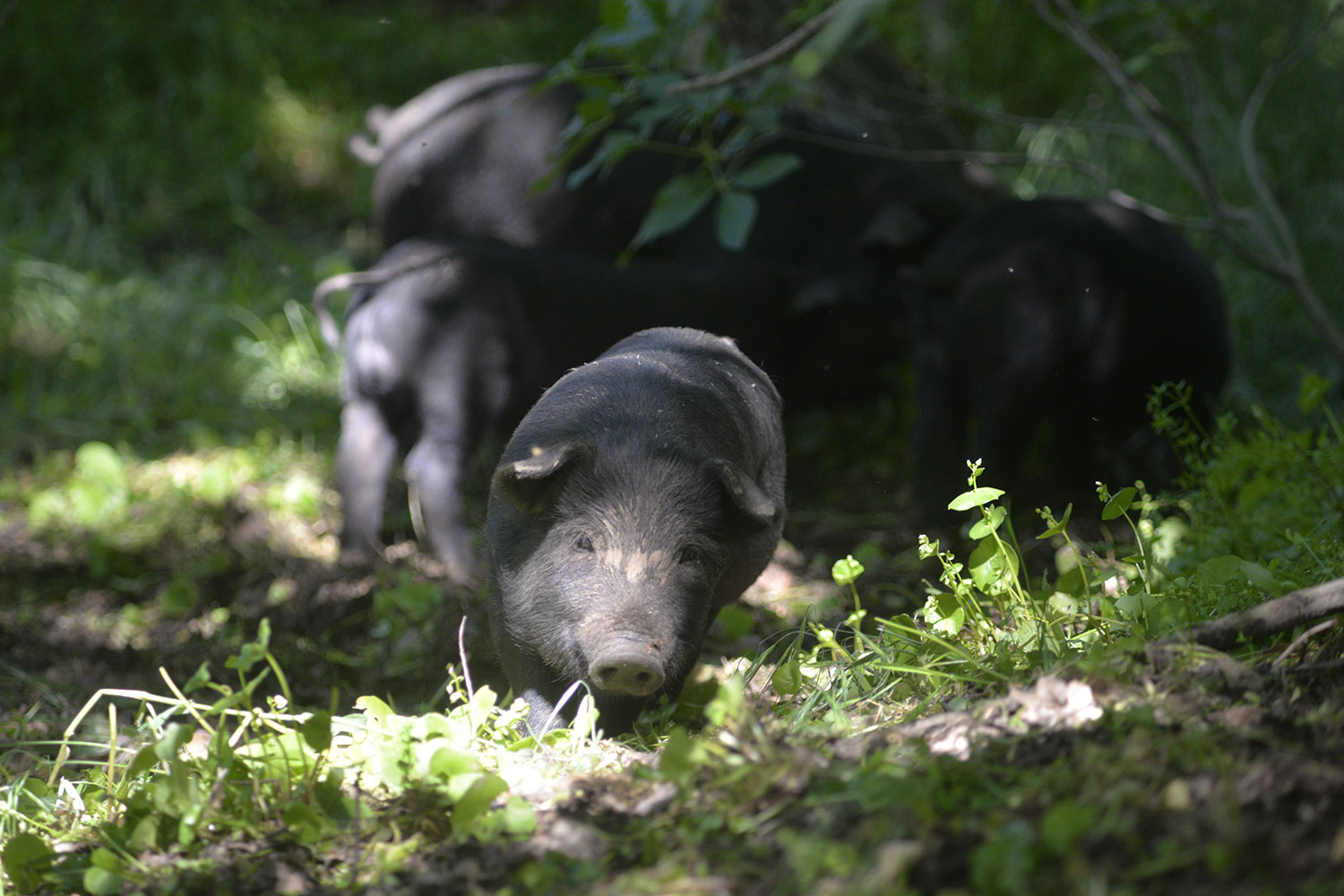SAVING HERITAGE HOGS,
ONE FARM AT A TIME
Critical importance of preserving heritage hog breeds through sustainable farming practices, emphasizing the role of small-scale farmers in maintaining genetic diversity and contributing to the future of agriculture.
PRESERVING HERITAGE BREEDS
A genetic heritage is an integral part of the heritage of humanity because some have been around for millennia. Heritage breeds have crossed the centuries, developing genes of hardiness, heat tolerance and disease resistance. They have a long, reproductive lifespan.
Heritage breeds were developed and used on farms, ranches, and homesteads before the advent of modern industrial agriculture. The decline of heritage breeds began due to of all things — grocery stores. Convenience took priority over growing our own food.
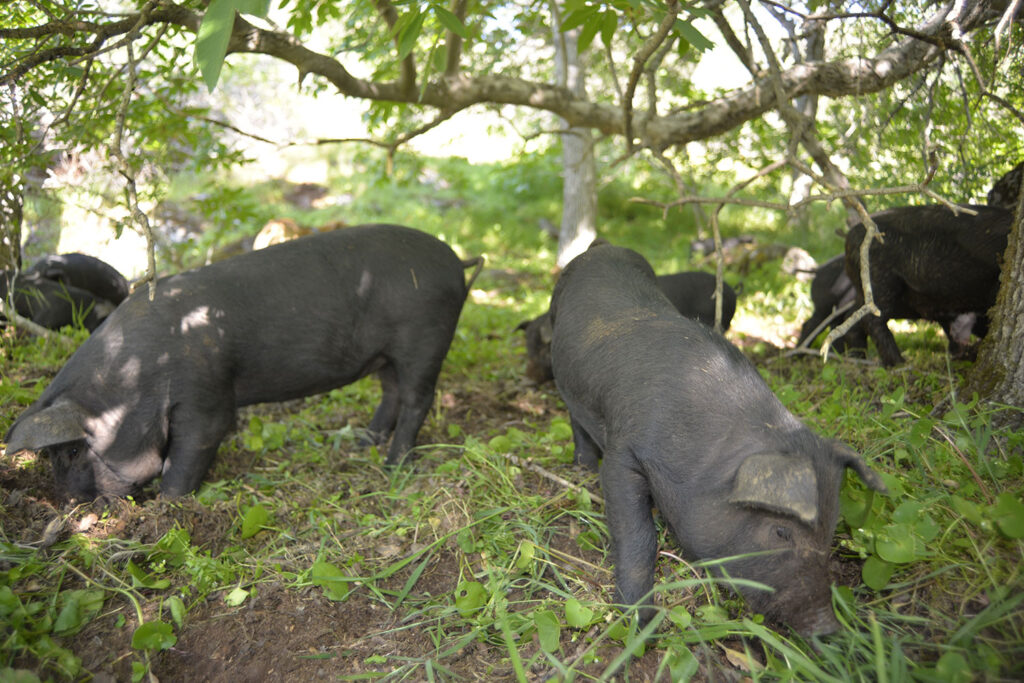
Raising heritage breeds is about preserving our roots and the work of our ancestors. These breeds are a priceless and irreplaceable part of genetic biodiversity and history.
“We don’t need a law against McDonald’s or a law against slaughterhouse abuse — we ask for too much salvation by legislation.
All we need to do is empower individuals with the right philosophy and the right information to opt out en masse.” — Joel Salatin
WHY CHOOSE HERITAGE BREEDS?
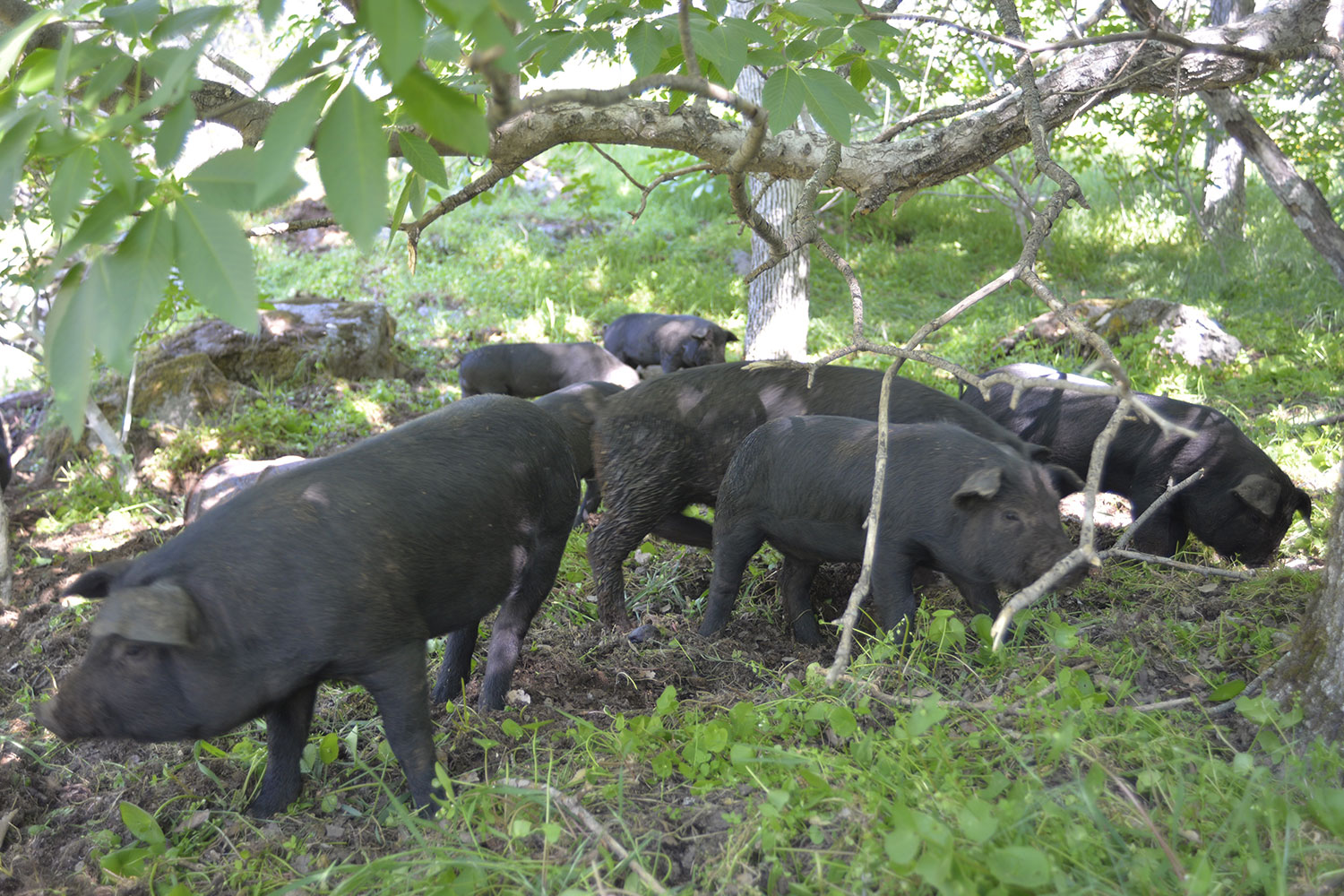
You’re a small-farm owner
Heritage breeds are a fantastic part of any small farm. These animals are independent and resilient, so they love to forage and free range, and have the ability to mate naturally. Pigs and chickens help cultivate the land. They have fewer health issues than commercial breeds because they tend to hardiness and disease resistance And they are well-adapted to a wide variety of climates.
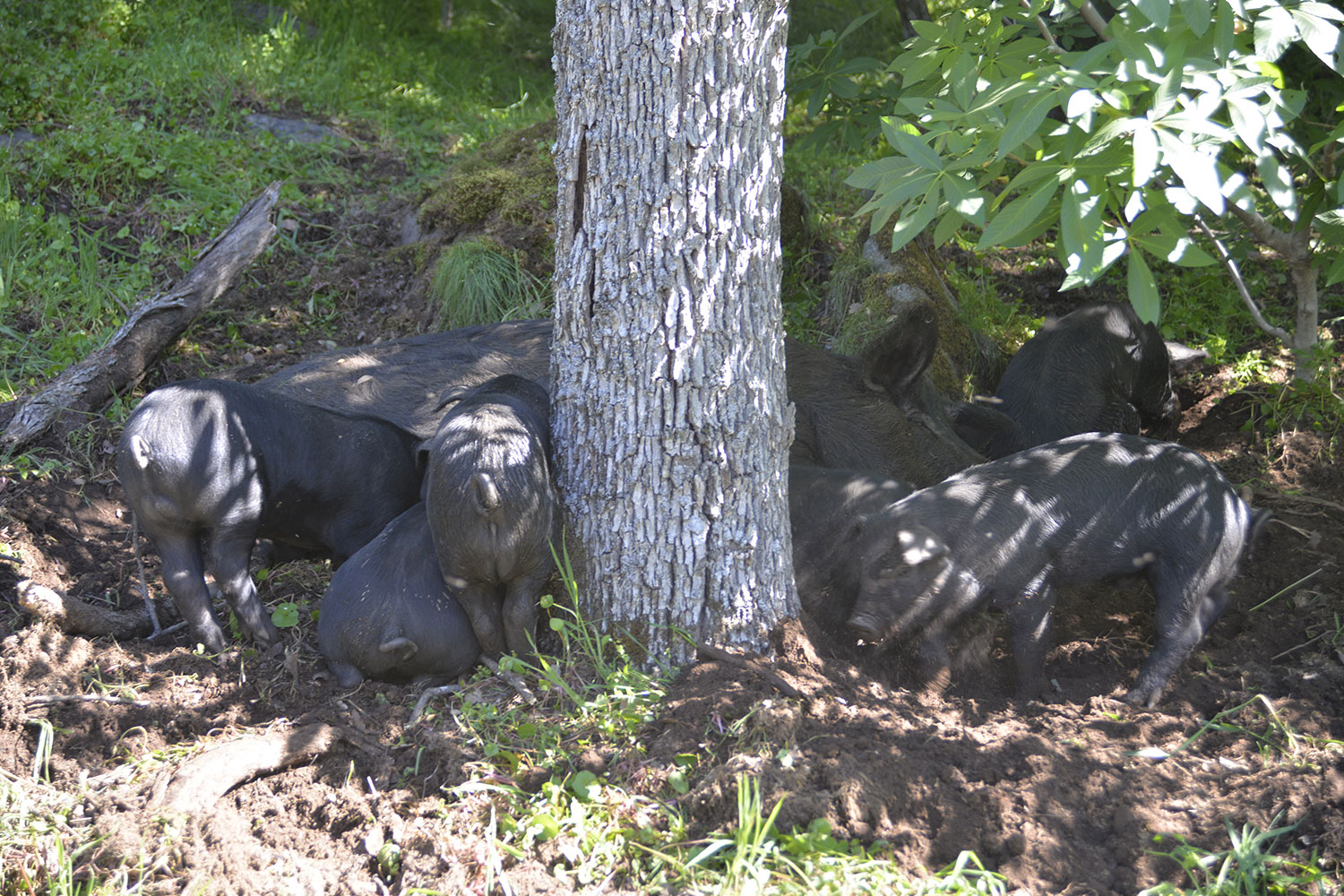
You’re a homesteader
You love being self-sufficient and living off the land. You purchased a house with a small acreage with a mission to plant a vegetable garden, fruit trees, and raise poultry and livestock for meat and eggs. Maybe you even produce your own electricity with solar panels and have a water well instead of being connected to public utilities.

You’re a hobby farm owner
You became a hobby farmer because of your love for animals. You take pride in preserving and caring for heritage breeds. Heritage breeds come in all sorts of colors, shapes, and sizes. Adding them to your hobby farm benefits biodiversity and conservation. They easily integrate with the rest of your farm due to their docile and friendly temperament.
mission
Help us grow a network of small farms committed to preserving endangered pig breeds! By donating, you’re enabling us to deliver breeding pairs to these farms, fostering a community that shares in the breeding diversity.
This initiative not only helps in maintaining genetic variety but also in distributing these heritage breeds more widely. Your support ensures the survival and proliferation of these unique breeds, promoting biodiversity and sustainable farming practices across the network.
Join us in this vital mission to protect and expand the population of endangered pig breeds.
Together, we can make a significant impact!
Heritage breeds are facing a crisis due to modern farming changes. In the last century, farming has shifted drastically, favoring uniformity across the globe. This shift means more animals are kept in confined spaces, fed standardized diets, and only a few modern breeds are used—those that produce the most in these conditions.
As a result, the rich variety of heritage breeds, each uniquely adapted to different local environments, is rapidly disappearing. We're losing the genetic diversity that heritage breeds bring to agriculture, which is a loss not just for farming, but for our global heritage.
Heritage breeds are becoming rare because of big changes in farming in the United States over the last hundred years. Farmers have been choosing animals that produce the most, which means fewer heritage breeds are around. When there are only a few animals of a breed, it's hard for that breed to survive.
It also makes it tough for farmers to improve the breed's productivity, leading to even fewer animals. As a result, these special breeds are in danger, with their numbers dropping as farmers move to more common, productive breeds.
Small-scale sustainable farmers play a crucial role in saving heritage pig breeds. By choosing to raise these breeds, farmers continue the legacy of our ancestors, promoting farming systems that work in harmony with nature. Heritage pigs are perfect for low-input, sustainable farming, offering a resilient and economical choice for today's farmers.
Getting involved with heritage breeds not only ensures their survival but also brings personal satisfaction, community connections, and economic benefits. This effort helps preserve a vital part of our agricultural heritage for future generations, contributing to the sustainability of agriculture.
Saving heritage breeds is possible through practical use and the revival of traditional breeding practices. By incorporating these breeds into productive farming and using time-tested selection methods, today's farmers can restore the valuable role of heritage breeds in agriculture. Promoting these animals and employing successful techniques can enhance their productivity. For heritage breeds to thrive, it's crucial they're raised for various purposes across numerous farms, echoing their historical usage.
Whether for exhibition or production, every effort contributes significantly to preserving heritage breeds. Thoughtful planning enables farmers to significantly aid in the conservation of these important breeds on their farms, ensuring their long-term viability and the continuation of our agricultural heritage.
Conservation breeders focused on heritage breeds should plan for the future by having a solid exit strategy. While starting with long-term intentions is common, the reality shows the average breeder’s involvement lasts about five years. This short span of involvement can lead to significant losses for the breed if animals are sold off quickly.
The discontinuation of a breeder’s work, especially upon their departure or death, can erase years of progress. To prevent this, a well-thought-out exit plan is essential to safeguard the breed’s future and ensure the continuation of their work.
HERITAGE BREED MULEFOOT PIGS
Our Mulefoot Pigs
One of our Mulefoot boars, Boris, originates from a farm in Connecticut. Our second boar, Bricktop, and his two sisters originate from a farm in Missouri. Two more sows and two gilts originate from a farm in San Antonio, Texas. We acquired all these Mulefoot and another six piglets (from two separate litters) from Rolling Dale Farm in Louisiana.
They are all registered with the American Mulefoot Breeders Association, Inc.

